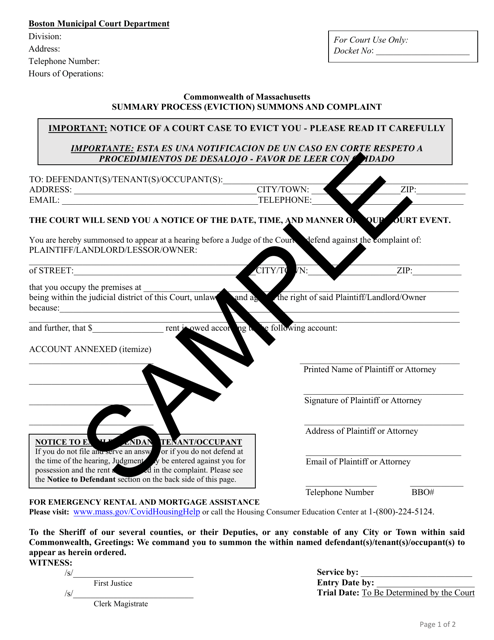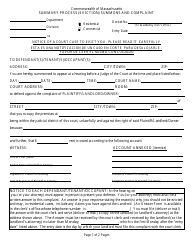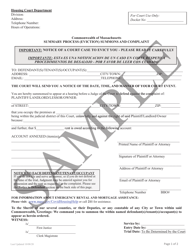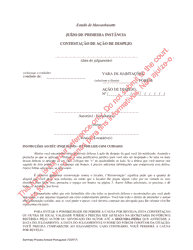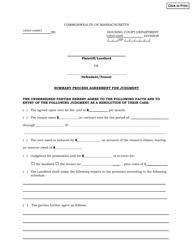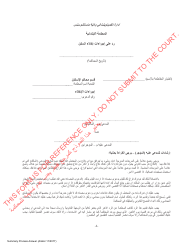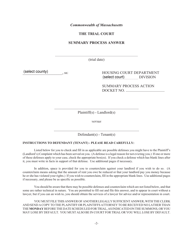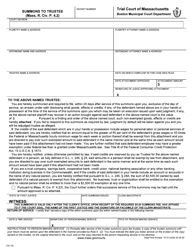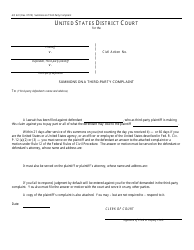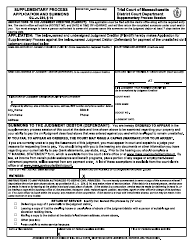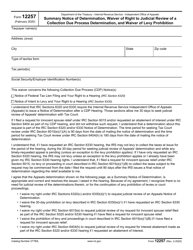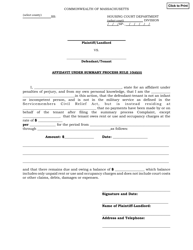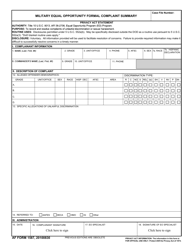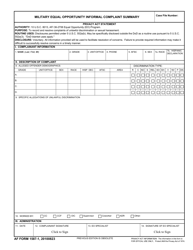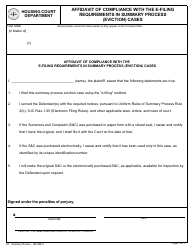Summary Process (Eviction) Summons and Complaint - City of Boston, Massachusetts
Summary Process (Eviction) Summons and Complaint is a legal document that was released by the Municipal Court Department - Boston, Massachusetts - a government authority operating within Massachusetts. The form may be used strictly within City of Boston.
FAQ
Q: What is a summons and complaint?
A: A summons and complaint is a legal document that initiates a lawsuit.
Q: What is an eviction summons and complaint?
A: An eviction summons and complaint is a legal document used to start the eviction process against a tenant.
Q: When is an eviction summons and complaint filed?
A: An eviction summons and complaint is filed when a landlord wants to evict a tenant for violating the terms of the lease or for other reasons allowed by law.
Q: What information is included in an eviction summons and complaint?
A: An eviction summons and complaint includes the names of the parties involved, the address of the rental property, the reason for eviction, and the date and time of the eviction hearing.
Q: What should a tenant do if they receive an eviction summons and complaint?
A: A tenant who receives an eviction summons and complaint should seek legal advice and respond to the complaint within the specified time period.
Q: What happens after an eviction summons and complaint is filed?
A: After an eviction summons and complaint is filed, the tenant has an opportunity to respond, and a court hearing will be scheduled to determine if the eviction should proceed.
Q: What can happen if a tenant does not respond to an eviction summons and complaint?
A: If a tenant does not respond to an eviction summons and complaint, the court may enter a default judgment in favor of the landlord and issue an order of eviction.
Q: Can a tenant fight an eviction after receiving a summons and complaint?
A: Yes, a tenant can fight an eviction after receiving a summons and complaint by presenting evidence or legal arguments to the court.
Q: What are some possible defenses against eviction?
A: Possible defenses against eviction include failure to provide proper notice, retaliation by the landlord, or a violation of the tenant's rights under the lease or applicable laws.
Q: Can a tenant be evicted without a court hearing?
A: No, a tenant cannot be evicted without a court hearing. The eviction process requires the landlord to file an eviction summons and complaint and obtain a court order.
Form Details:
- The latest edition currently provided by the Municipal Court Department - Boston, Massachusetts;
- Ready to use and print;
- Easy to customize;
- Compatible with most PDF-viewing applications;
- Fill out the form in our online filing application.
Download a fillable version of the form by clicking the link below or browse more documents and templates provided by the Municipal Court Department - Boston, Massachusetts.
